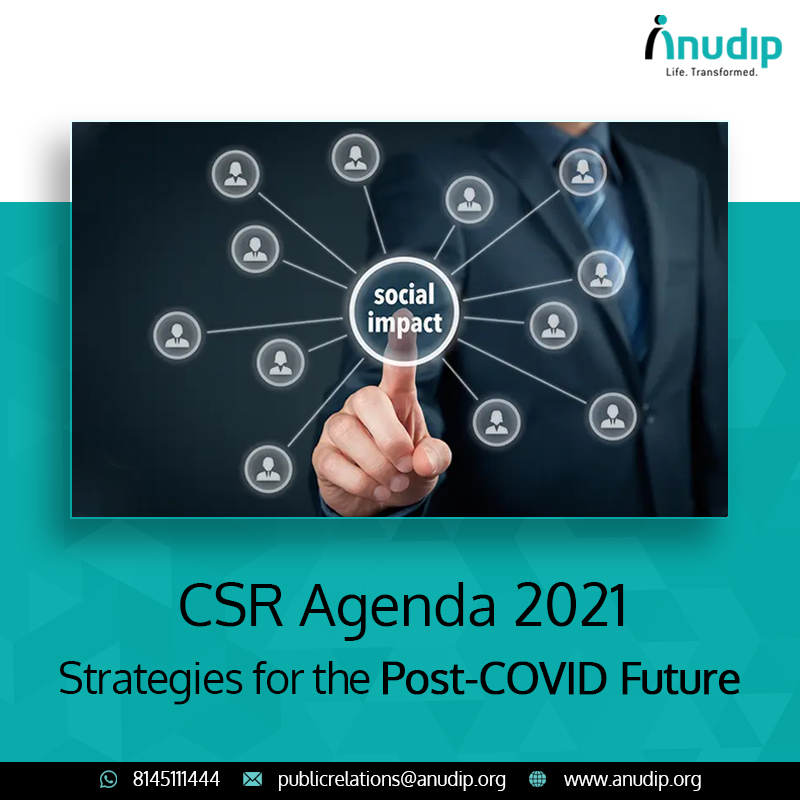
I n conversation with Dr. Mahul Brahma (D.Litt, PhD), CSR Expert, TEDx Speaker, Columnist, Author, Chief Editor and Head – Corporate Communications, Branding, Publications and Conferences, mjunction
n conversation with Dr. Mahul Brahma (D.Litt, PhD), CSR Expert, TEDx Speaker, Columnist, Author, Chief Editor and Head – Corporate Communications, Branding, Publications and Conferences, mjunction
The CSR Agenda 2021: Critical Strategies to Define the Post-COVID Future – Build to Last
Interview Questionnaire for the newsletter
Q.1 Technological advancements have redefined the idea of “best practices” in almost all operations, including corporate social responsibility. The unstoppable force of technological advancements gained momentum with the COVID-19 pandemic. Do you feel this momentum has upended the priorities of CSR leaders worldwide?
Yes it has. With the advent of Covid19, the world can’t only focus on businesses anymore, it needs to integrate business development and social impact. Balancing science, commerce and social responsibility calls for a vision. A vision that cannot easily be obtained by merely putting money for publicity. That vision needs to be nurtured, shaped and hand-held for a time to see results. Visionary leaders must also learn to spend their corporate social responsibility budget more effectively rather than merely donating it to any treasury and feeling satisfied to have contributed. Accountability and effectiveness is as important as having lunch or dinner on a normal day.
Q.2 What do think will be needed to build a more resilient social economic environment in India to further strengthen the contribution of the corporate world in corporate social responsibility (CSR), in the COVID economy?
A post Covid19 world calls for greater activism, deeper engagement on ground and lesser optics. The true meaning of life is to plant trees under whose shade you may not live long to sit, but that will benefit the future generations. So sustainable, effective CSR projects and technology enhanced projects are the future of CSR.
Q.3 Has covid has pushed CSR deeper into corporate consciousness? We have seen a lot of CSR funds being pushed towards Covid solutions in 2020. What do you think are likely to be focus areas in 2021?
Stakeholder activism is at an all-time high this year now that everything has become politicized, we live in a divided nation, have challenges from a public health crisis to climate change, and people feel that companies should be part of the solution, not the problem. These conversations are happening in and out of the workplace so every organization has to take them seriously because they impact corporate culture. Thankfully, CSR is now taken very seriously in corporate culture and MDs are spending more time on CSR now.
4) One of your focus areas has been livelihoods. Do you have any thoughts on how the livelihood and skilling space needs to change in order to adjust to the new normal?
Both the job role and skill development need to be defined based on the community and market need. Digital education should be a hygiene to every other program. The way forward, I believe, will be a technology-backed hydrid model of training.
5) What would you say has been the highlight of Mjunction’s CSR efforts in 2020? Is there anything you are particularly proud of?
The learning landscape is dramatically changing and there is steadily increasing focus on moving out of the traditional face-to-face learning mode to completely online or a blend of online and face-to-face learning. Adapting fast and embracing this “new normal,” mjunction has made suitable modifications to its existing CSR projects. In doing so, in FY21 alone, mjunction has transformed 10,500 lives.
Digital intervention in the education space which is mjunction’s focus area, has become the most meaningful under our unique programme Project Jyoti, which aims to create a sustainable change in the lives of visually impaired students.
It is said that survivors are not always the strongest but the smartest and rightly so, the time to adapt smart solutions and innovative thinking to revolutionise the education sector is now and here. This year has been different in every aspect owing to the COVID-19 pandemic. In the Unlock 4.0 stage, the economy is slowly opening up, and people are getting back to work. However, education institutes remain closed and are dependent on online lessons.
Amid speculations of reopening, it is almost certain that there is no going back to the pre-Covid conditions in the near future. Educators are therefore reimagining and recalibrating to address the challenges and grey areas that surfaced during the complete lockdown period.
mjunction’s study on the “new normal” situation has thrown up the following three realities: